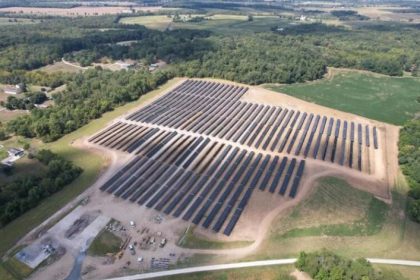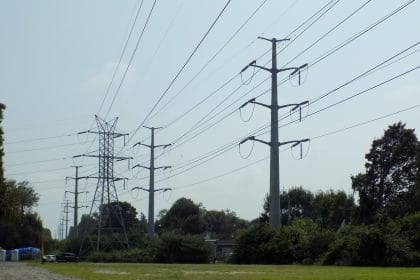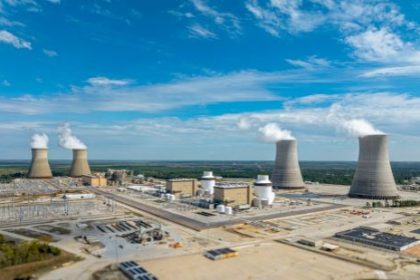Hydrogen as Fuel of the Future is a ‘Jump Ball’

WASHINGTON — When America Hernandez first took her job as an energy policy correspondent just over a year ago, hydrogen was considered a futuristic, but somewhat niche subject. “Boy did that change quickly!” she told participants at the Wilson Center’s Earth Optimism event focused on Hydrogen as Fuel of the Future this week.
As countries have pledged climate and carbon neutrality agreements over the last year, hydrogen has been hailed as a salvation for hitting emission targets. Countries are upending their economic models to use hydrogen as a green alternative to fossil fuels and contemplating switching to hydrogen as an energy source for everything from individual automobiles to aerospace.
Hydrogen is a noble gas — H — on the periodic table. Hydrogen can burn in two ways: It can be used in nuclear fusion, in powerful reactions like those that cause stars to burn, or it can combust on earth with the help of the oxygen-rich atmosphere. When it burns in oxygen, it produces a large amount of heat as energy and, unlike more common fuels, leaves behind only water and no contaminant particles.
“When we first talked about hydrogen, the focus was really on light-duty vehicles,” said Julio Friedmann, senior research scholar at Columbia University’s Center for Global Energy Policy. “But now applications are growing in importance.”
Friedmann agrees that hydrogen has “come roaring out of the gate this year” because it is “one of the few fuels we know of that doesn’t have carbon in it,” and zero-carbon fuels will be required to fit the bill for nations’ net-zero carbon ambitions by 2050.
“The world is changing very fast and anybody who is asleep at the wheel will miss this opportunity,” said Friedmann. His ‘anybody’ includes companies as well as countries. “It is a jump ball. There is a lot of opportunity… we will see a lot of dramatic investment and opportunity in a very short amount of time.”
Hydrogen is most currently commonly used in petroleum refining and fertilizer production, but transportation and utilities are emerging markets. Proponents predict uses in mobility including passenger cars, buses, and even heavy-duty trucks, which has high attention today, though they claim the same hydrogen fuel technology can also be used for combined heat and power sources or for backup power applications.
“[Hydrogen is a] key enabler to expand further growth of offshore renewables” and create a stable grid for storage, according to René Peters, director for Gas Technology at TNO – Organization for Applied Scientific Research in the Netherlands.
But the promise of hydrogen doesn’t come without its scientific, economic, and logistic challenges.
The most difficult steps in tapping hydrogen as a fuel are finding it in its pure form and using the energy it produces efficiently. You have to make it before you can use it, and it actually takes more energy to produce hydrogen — separating it from other elements in molecules — than hydrogen provides when it is converted to useful energy.
“The choke point is the green energy you need [to produce hydrogen as fuel],” explained Friedmann. “We’re talking about quadrupling the power grid of the world just to make some hydrogen. We’re… going to run out of places to put wind farms.”
Infrastructure is one of the other important parts of using hydrogen to meet future carbon goals, as well as its other big challenge. While this is partly about scaling up the technology and bringing down costs, infrastructure concerns also surround storage and transportation.
“We do not have the infrastructure in place for generation and transmission,” said Friedmann. Hydrogen infrastructure is not yet developed to the level that would allow fuel cell systems to be used in a decentralized manner.
“The existing infrastructure is not capable of handling the world’s ambitions for 2030 [energy reduction targets],” said Friedmann, and installing new infrastructure not only takes time and funding but needs to cut through bureaucratic red tape. “Every week is Infrastructure Week for the next 30 years. If we’re not building infrastructure, we’re going to fail.”
Still, countries are forging ahead with zealous hydrogen goals.
“Japan is now the global market leader having agreed to net-zero [carbon] by 2050 and… committing its entire power sector to hydrogen,” said Friedmann. Japan recently announced its intention to build the world’s first full-scale hydrogen supply chain, referred to as the “hydrogen society,” though it is currently unable to produce enough hydrogen at scale for the nation’s immediate needs.
While Friedmann said that “Europe really is leading in very substantive ways, particularly on subsidies and infrastructure,” Chile is also at the forefront, building ports and producing hydrogen at comparatively low cost. And Canada also boasts an impressive hydrogen roadmap.
“North America is really sort of the Gold Rush, if you will, for hydrogen,” according to Katy Perry, deputy vice president of New Energy Business at Siemens Energy. “They want to get into it, but they aren’t really sure how to do it.”
To create market aligning policies, the U.S. is starting with a hydrogen agenda through the Department of Energy as well as extending carbon subsidies and adding tax credits for manufacturing.
As the promise of hydrogen as a green energy solution persists, demand is anticipated to double — or even triple — over the next decade. Hydrogen is poised to be a prime source of clean energy to help nations meet ambitious climate neutrality goals, but first, energy and infrastructure challenges must be overcome.

























